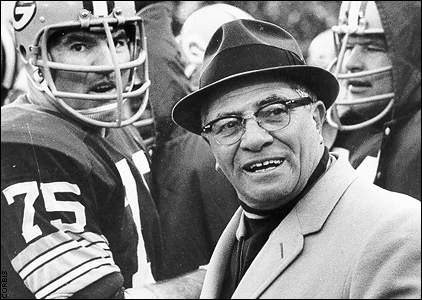By Durk Johnson — One of the greatest NFL football coaches is Vince Lombardi. At the beginning of each season he would take grown men, some of whom had played football for decades, and hold up a football and say “Gentlemen, this is a football.” He would then explain the basics of the game. After a while they would move to the football field and the explanation of how the game is played and the objective of the game would be explained.*
As leaders and managers we need to do the same thing with returning seasonal staff and fulltime year round staff. We need to cover the basics of what we do and why we do them.
Here are a few housekeeping basics to cover:
1. Housekeeping Kit
Discuss how and why each chemical or tool is to be used. Take the time to do demonstrations of proper ways and improper ways, so they can see how it is to be used. The basic housekeeping kit should have:
- rags (microfiber are the best ones to use)
- bathroom disinfectant cleaner
- all purpose disinfectant cleaner
- a room deodorizer
- a mild wood floor cleaner
- razor blades for smooth top cook stoves
- oven cleaner
- pumice stone
- magic eraser
- gloves
- trash bags
- doodle bug
- a large lint roller
2. Inspection Kit
Talk about the necessity of the inspection kit and how it can help them be effective at doing their inspections. What is inside the kit is going to vary on what guest amenities are provided and what expectations you have for your inspectors? Some of what should be included would be:
- toilet paper
- paper towels
- guest amenities (if provided)
- batteries
- multi tool
- laundry soap
- dishwasher soap
- any guest specific items that your company provides
3. Specialty Cleaning Products
I call them specialty cleaning products because only certain people have access to them and are trained to use them. There are two types of products I would like to highlight today:
- an enzyme product that eats proteins, such as urine, blood, vomit, and beer just to name a few
- a product to address mold and mildew that includes Australian Tea Tree Oil
4. Piece Rate
All housekeepers should be paid piece rate. This motivates the housekeeper to clean with speed and quality.
5. Inspections
Every arrival must be inspected for housekeeping quality and guest readiness. This inspection allows the inspector to make sure all is in order in the home. Some items include:
- pillows are staged right
- blinds are set appropriately
- thermostats are double checked and temperature is set correctly for the time of year
- doors and windows locked
- kitchen pots/pans, plates, cups, utensils, and all other items placed neatly in the cabinets
- correct number of hangers in closets and placed in the correct location on rod
- appropriate number of towels in each bathroom
6. Standard Property Appearance (SPA)
Every company should have a document that illustrates and explains how the property is to be left when the housekeeper and inspector have completed their work. This document is not easy to create. It takes a lot of thought and work, with many people and departments collaborating for the final product. Once complete, everyone knows how the property is to look when the housekeeping staff have completed their work. Follow the wall – this procedure is a foundational housekeeping principle and every housekeeper and inspector should use it every time they clean, inspect, or check a property.
Some of the items this document addresses are:
- how the towels are hung and where
- how many rolls of toilet paper are left and where
- how many paper towels are left and where
- how the blinds are set for an arrival or departure
One last item for you to consider, every housekeeper is a memory maker. Every time a housekeeper or inspector does work in a property they are a part of memories made in the property. We need to remind our staff of this.
If you have any questions you can visit www.VRHP.org or reach out to me for more information.
* Vince Lombardi, in Donald T. Phillips, Run to Win: Vince Lombardi on Coaching and Leadership (2001), 92.


